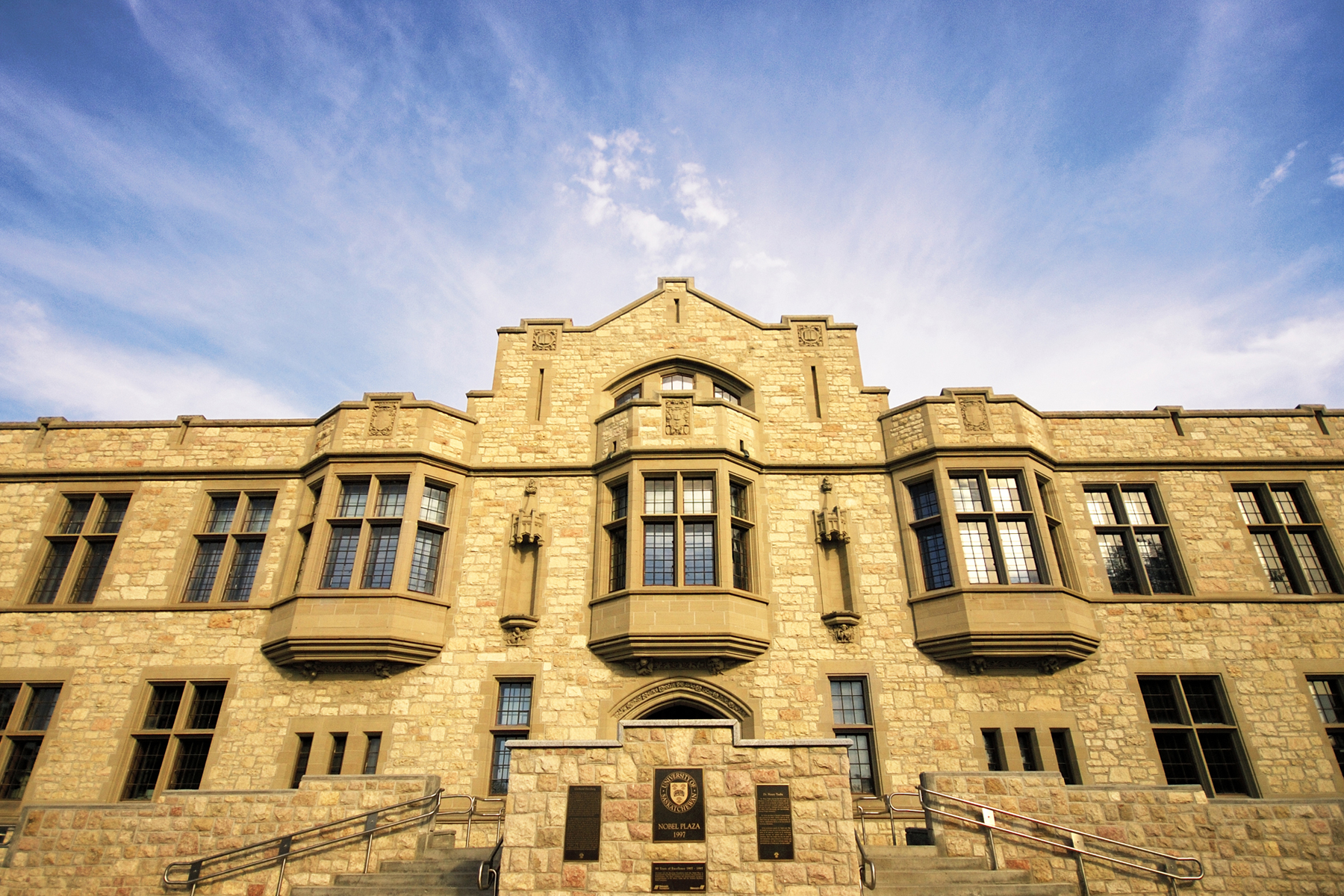
The Best of Times; The Worst of Times
General Academic Assembly 2024 State of the University Address
By Peter StoicheffThis speech was delivered shortly before the Federal Budget 2024 was tabled on April 16, 2024.
By any measure, this past year has represented the best of times for the University of Saskatchewan.
Our enrolments have continued to increase, taking us to the range of 27,000 students. 15 percent of those are international, indicating we are globally attractive to learners; 18 percent are graduate, ensuring our world-class research, scholarly and artistic work is well supported; 12 percent are self-declared Indigenous, representing one of the highest Indigenous student populations of any university in the country, as we should have and as we’ve set out to have in recent years.
We are seeing these numbers because we have excellent faculty and staff who contribute to our mission. Students come to Canadian universities because the education quality is globally competitive, and because they are confident they will receive a first-class affordable education here, in first-class labs and lecture halls, on a first-class beautiful campus, at an institution that has a welcoming community and respects equity, diversity and inclusion.
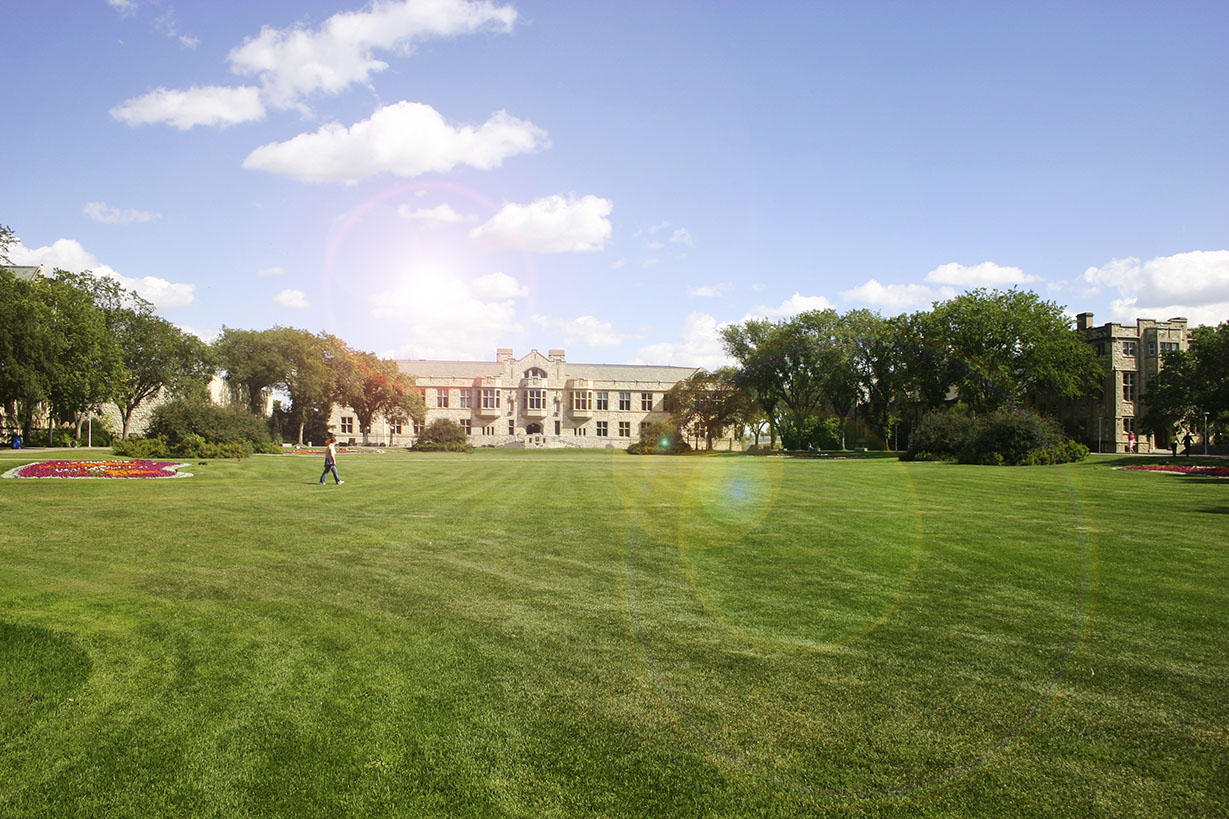
Our research income has continued to increase as well, and we are well on our way to far exceeding the $300M mark for the second time in three years. This number is up transformatively from five years ago. Our five-year rolling average for research revenue was $180M from 2012-16 and $250M from 2020-2024. This funding supports our curiosity-driven research, scholarly and artistic work in all our areas of expertise, from the fine arts through to infectious disease work. It also allows us to have the impact this university is known for, one that continues to spread world-wide. This doesn’t happen just by chance. It speaks again to the quality of our faculty and staff, our postdoctoral fellows, our graduate students, our facilities, and to the fact that we are now a talent magnet for highly qualified people from here and around the world who see this university as a place to realize their academic ambitions and to make a positive difference to a world that needs them now.
These marks of excellence in enrolments and research income are a testament to our department heads, associate and vice-deans, deans, AVPs, and vice-presidents; to the heads of our major research units; and to the many people who support them in their important work including our 170,000 alumni world-wide and our retirees who contributed before us. It’s been a full-court press by the entire university community to get to where we now are.
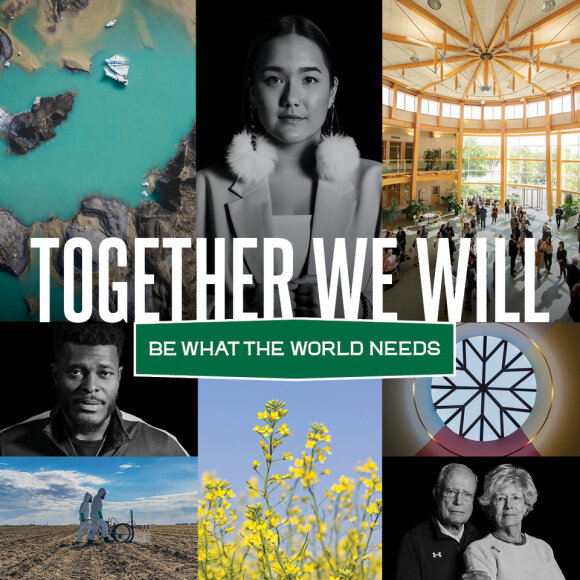
We are also about to begin the last year of a Comprehensive Campaign the likes of which we’ve not seen at this university before, nor in this province. Our goal of raising $500M in support of our mission could not have been set had we not had confidence in our success; and we wouldn’t be where we are now – at the $412M mark – if it were not for the fact that not only I believe in that excellence, but many thousands of others do as well, who have contributed to this campaign so far – our students, faculty, staff, alumni and other supporters here and around the world. Word of this university’s excellence has gotten out, and our campaign results to this point are a testament to that.
I was in Singapore last month with University of Saskatchewan colleagues at a Canada In Asia Conference – the second we have been invited to in as many years. The themes of this conference were AgriFood and Climate Change. Our profile there was high, our recognition acknowledged, our expertise appreciated, our presence counted upon. I have seen this recognition of our excellence in Germany and London as well this year, in Dubai at last November’s CoP Conference, at the many U15 and Universities Canada meetings in Ottawa I’ve attended and chaired, at high-energy alumni events in the UK, Hong Kong, across Canada and in the United States.

Consider as well that three of our senior leaders – the deans of Agriculture & Bioresources and of Education, and our Provost -- were invited to speak at the United Nations in New York and Rome this past year on subjects they are experts in. The current president of the USSU has been named one of four Young Diplomats of Canada attending the G20 Summit in Brazil this summer. Of the eleven Rhodes scholarships available to 97 universities in Canada, our students received two. Eighty-eight Canadian universities were not awarded Rhodes scholarships, and the other university that received two has four times the number of students we do. Over our university’s history, seventy-five of our students have now received this prestigious award. Being what the world needs.
The significant research funding our Global Institute for Food Security has received this year supports its work that shows select field crops grown by Saskatchewan farmers are producing relatively low amounts of greenhouse gas emissions. It also supports the partnership with Bangladesh on work that’s crucial to that country’s 170M people. Our crop research projects continue to aid the growth and advancement of the agricultural industry in this province, across Canada, and globally. Being what the world needs.

Our Institute of Space and Atmospheric Studies has received one of the largest amounts of Canada Foundation for Innovation funding awarded this past year to study atmospheric changes in the climate, leading 13 Canadian universities on the project. Being what the world needs.
Our health-related researchers had a 42% success rate in CIHR grants, far higher than the national average. That funding supports work on new breast cancer treatments. It will support research by members of our Community Health and Epidemiology Department in Medicine to improve sexual, reproductive and maternal health rights for adolescent girls and women in Mozambique. Being what the world needs.
VIDO signed an agreement with the UK Pirbright Institute to expand collaborations and training around vaccine manufacturing. It has also been selected as one of eight labs in the world to collaborate with the Coalition for Epidemic Preparedness International (CEPI) to help reduce the production time for vaccines from the recent 13 months to three. VIDO has also been selected to join a NATO initiative to advance new technologies to protect human and animal health. Being what the world needs.
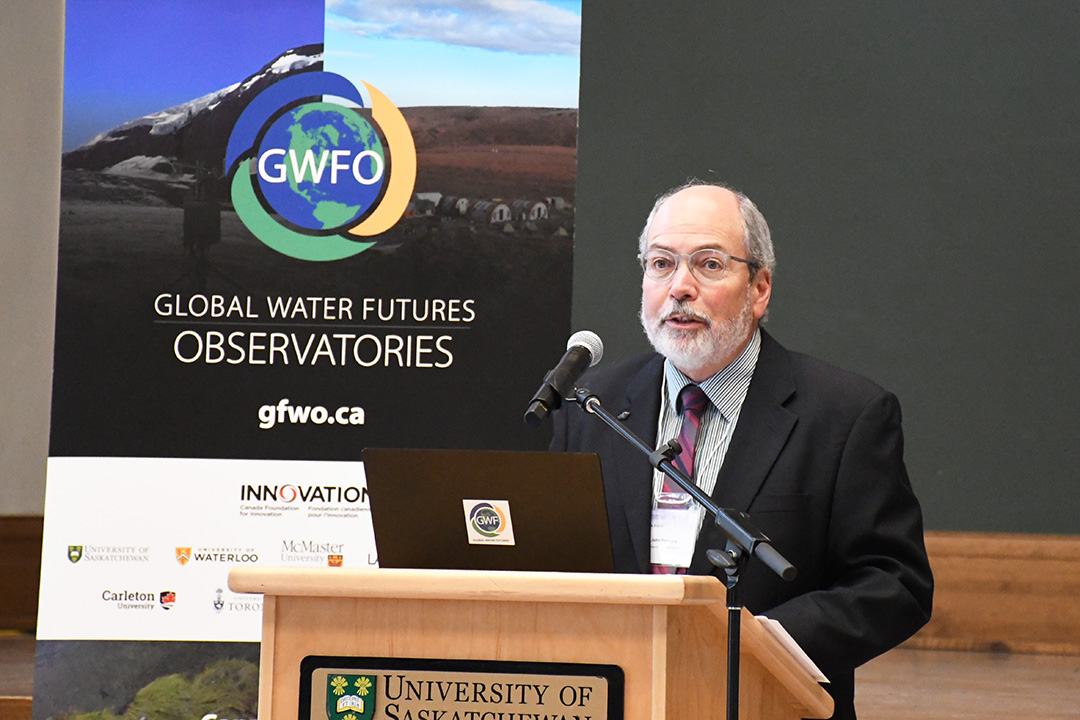
Our water security researchers have been funded through the Canada Foundation for Innovation to lead its Global Water Futures Observatory project, leading nine Canadian university partners in the development of strategies to ensure the long-term sustainability of Canadian water resources. Being what the world needs.
What could be more important for a research-intensive university than to be leading national and international work on food security, global health challenges, pandemic preparation, and water security?
Closer to home, our College of Medicine had its Department of Indigenous Health and Wellness, a first in Canada, approved by Council, Senate and the Board of Governors. The College of Education’s Masters of Indigenous Land-based Education, unique in North America, saw its first graduates convocate at last fall’s ceremonies. Our Department of Indigenous Studies in the College of Arts & Science celebrated its 40th anniversary – when it began, we were one of the few universities in Canada that had an Indigenous Studies department offering graduate and undergraduate programs.

Our one-of-a-kind MoU with the City of Saskatoon, signed in 2018, is well into its second 5-year term, and has yielded collaborative research on homelessness and housing insecurity, carbon emission reduction, healthy and sustainable transportation strategies, and the opioid epidemic. Our one-of-a-kind MoU with the Saskatoon Symphony Orchestra continues to bear fruit with collaborative RSAW projects and concerts. Our one-of-a-kind MoU with Remai Modern does as well, and will be the foundation for an international conference on Picasso this fall. To be what the world needs starts with being what the City needs.

Which leads me to mention the sold-out event, held here in Convocation Hall last fall, that mixed quantum science research with music, and that our Greystone Singers will be performing in Carnegie Hall this June.
These advances are merely a snapshot of our university’s impact this past year alone. It is not surprising, given our recent achievements, that we have done well in the 2023-24 international rankings, which serve to confirm independently our own positive assessment. Despite 124 new universities on its list, the QS institutional rankings still elevated us by 128 positions – an unheard of one-year increase for any university. The Times Higher Education rankings moved us from the 501-600 category of last year to the 351- 400 category, our best placement ever. In the QS Sustainability rankings we placed 89th, our best result ever. In the THE Impact rankings, also based on UN Sustainable Development Goals progress, we placed 67th, and in two SDG categories we placed in the top twenty in the world, out of close to 2,000 universities.
Despite our university’s advances and momentum, its impact locally, nationally and internationally, and the many independent measurements that confirm our own assessments – and despite the fact that, in their own ways, universities in this country continue to perform in excellent fashion -- 2023 was not a good year for the Canadian post-secondary sector. A real Annus Horribilus, actually. As a sector, we’ve become used to tough times, but the last year and a bit have taken things to a whole new level of tough.
The very institutions, including the University of Saskatchewan, that had efficiently and creatively helped pull Canada out of the pandemic, conducted leading research in areas of domestic and global importance, collectively graduated hundreds of thousands of educated and engaged young people, and contributed vastly to the Canadian economy, were reeling by early 2024 from a succession of financial left hooks and political sucker punches.
South of the border, things were even worse. By the end of the year, the supposed “rot” in U.S. world-class universities was being exposed, their presidents besieged, their autonomy vaporizing. Secure in their roles as knowledge guardians and innovators for a couple of centuries, in the space of little over a year universities they seemed to become the hapless Wile E. Coyotes of their time, catapulted by their own supposed ineptitude into a canyon of contempt and criticism.
Back here in Canada, 2023 started innocently enough, though in hindsight the early warnings of strange and ominous times ahead were there.
Faced with the problem of sky-rocketing housing prices eluding the reach of middle-class Canadians, the federal government announced its Prohibition on the Purchase of Residential Property by Non-Canadians Act, effective January 1 of 2023. Intended to achieve what its title described, it caused a tremor across the post-secondary sector.
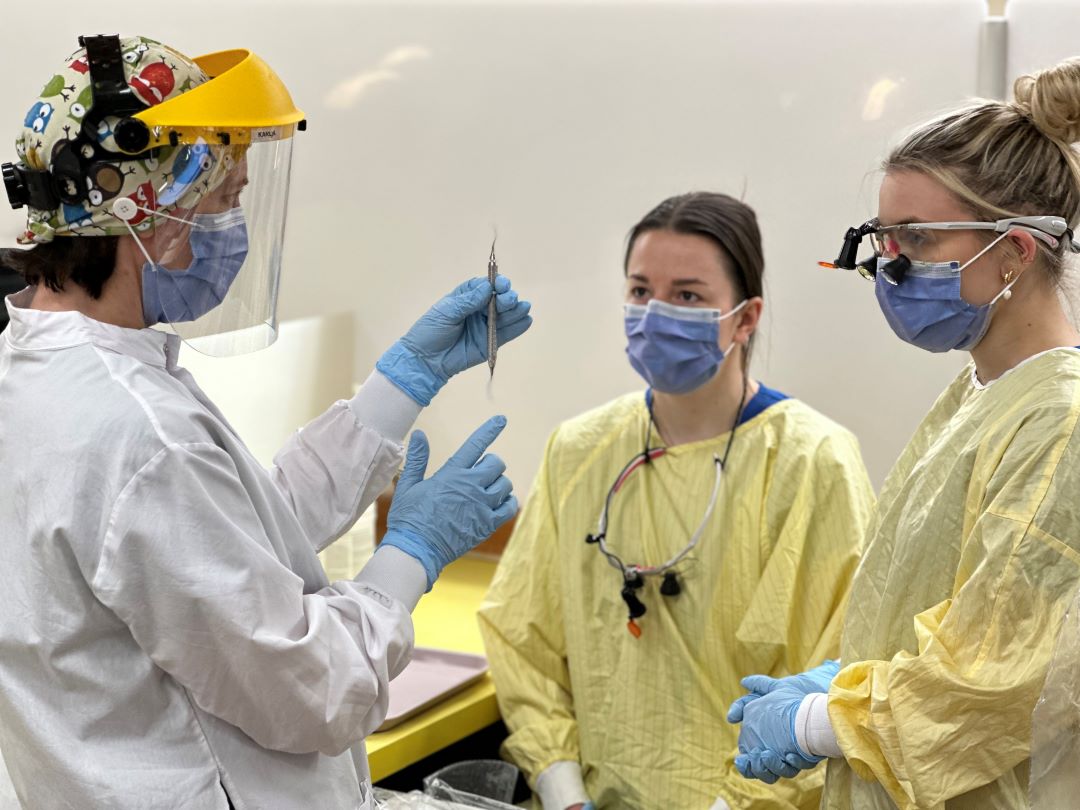
The Act meant university hires from outside Canada would not be able to own a home here, severely reducing the country’s attractiveness to talent from the rest of the world and accelerating a brain-drain by foreign academics who were already newly settled but yet to purchase property. (Keep in mind that we attract faculty, postdoctoral fellows and graduate students from over 130 countries around the world.) Eventually, and after much effort, the post-secondary sector managed to get an exemption from the Act, but the initial version passed in Parliament left the impression that universities were insignificant collateral damage when it came to solving other issues of importance.
Meanwhile, the federal government remained concerned about the potential targeting of Canada’s research by risky foreign state actors. The perceived threat was such that federal research funding was ineligible for projects “affiliated with a university, research institute or laboratory connected to military, national defence or state security entities of foreign state actors that pose a risk to our national security.”
Although necessary in principle, the absence of any clear indication of who those foreign state actors actually were had a chilling effect on the Canadian university research community. Government promises to name them continued for many months, but in the interim universities themselves were given the task of identifying them, something we were in no way equipped to do. As a result, some of the country’s top research stalled by as much as two years.
All this pales by comparison with Quebec’s recent policy of forcing its three primarily Anglophone universities to increase the tuition for their non-Francophone students by 33 percent. This move threatens to severely constrain these universities’ budgets, shrink their once-global attractiveness, and diminish their academic standing. McGill, one of Canada’s top universities, a member of U15 Canada, ranked 31st in the world and among the three in Quebec’s cross-hairs, has described the financial effect of this policy as “catastrophic.” Even in the short period the policy has been in effect, applications to at least two of the three universities have “plummeted.” As a result, they have had to take the unheard step of suing their own provincial government to prevent it from continuing with the new tuition change policy.
Most recently, the federal government imposed a 35 percent, two-year reduction and cap on international student visas to control rising rental costs attributed to high numbers of international students, to stop the increase in asylum- and work-permit seekers using post-secondary education as their entryway, and to curb the growth of low-quality private colleges exploiting foreign student demand.
Canadian universities, however, have not contributed to these issues, and have not exploited their international students. Quite the opposite – international students receive superb educations, opportunities and supports at Canada’s universities, and either return home to their countries of origin as exceptional contributing citizens there, or remain in Canada to contribute here. While universities have kept their international student enrolment increases deliberate and contained, the number of private colleges has ballooned in recent years, and their international student enrolments swelled 420 per cent between 2015 and 2019 in Ontario alone.
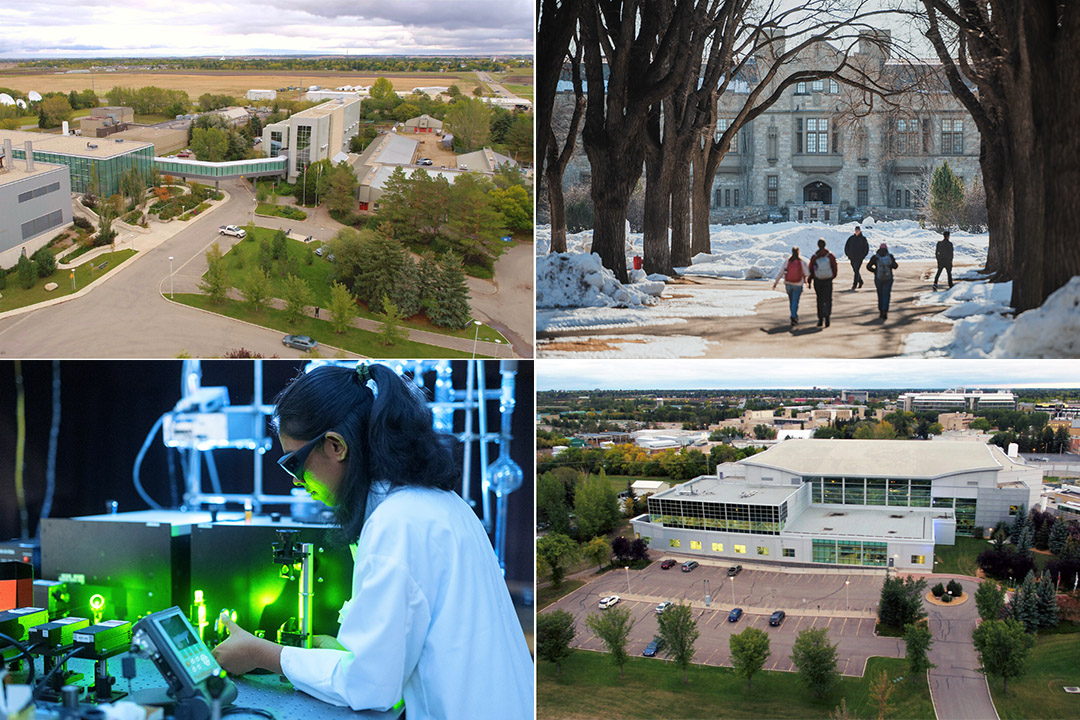
No matter – all Canadian universities remain swept up in the policy. Introduced at precisely the time of year universities would normally be offering international admissions will further damage Canadian universities’ budgets, diversity, reputations, and attractiveness as a world destination.
That message, however, has already been sent, in the form of low and globally uncompetitive federal research funding to universities: there has been no increase since 2018 which, given inflation, amounts to a significant reduction. The value of Canada Graduate Scholarship awards, critical to Canadian universities’ research and to the country’s attraction of new talent, has not increased in 21 years. Not surprisingly, Canada now ranks 28th among the 38-member OECD in the share of Master’s or Doctoral degrees per capita, not something to be proud of.
This is in stark contrast to countries such as the U.S., Japan, Germany, the Republic of Korea and others that have continued to increase funding for their university research sectors, knowing it’s an investment in the future and in their youth, that it will drive innovation, attract top talent from around the world, and support the fundamental research that is crucial to scientific and medical breakthroughs. Research-intensive universities such as ours are critical to Canada’s economy because modern economies are now knowledge-based. The OECD predicts that Canada’s economic growth will lag behind every member of the group from now to 2030. The underfunding of research is a big reason for that lamentable fact.
The underfunding of university research is not only negatively affecting Canada. As a guest at a recent U15 meeting in Ottawa, U.S. Ambassador to Canada David Cohen noted that, adjusting for population, we spend only half the amount on research the U.S. does and asserted that “cross-border cooperation on research is integral to the security and prosperity of North America -- and that’s mutually beneficial to both our countries.” If only a Canadian official of influence felt as strongly about it and said so.
Federal Budget 2024, to be tabled on April 16th, must send the strong signal, through a significant increase to research funding at the very least, that Canada is serious about supporting its great universities’ missions and their imperative role in the country’s future prosperity and global influence. Without a substantial investment in research funding in the upcoming Budget, half a decade after the most recent increase, our country’s global attractiveness, innovation, competitiveness and reputation will be severely damaged.*
*Budget 2024 did contain a significant level of support for university research.
As avenues of funding for universities shrink, end, or become compromised, it’s inevitable that philanthropy would assume greater significance as a source of revenue. Yet that too is being thrown on the carpet and danced upon, in this case by recently announced modifications to the “Alternative Minimum Tax for High Earning Individuals” or AMT. Already announced and to be imposed any time now, they will make philanthropic support to universities a less attractive proposition for wealthy potential donors and will have a negative effect on yet another source of revenue universities have until now been able to attract.*
*Budget 2024 did amend some features of the earlier AMT changes, resulting in improved donation tax incentives.
Canada’s post-secondary sector is a leader in supporting climate sustainability through research, teaching, policy improvement, advocacy and community engagement. Our university is a key contributor to that work, as reflected in our results in this year’s THE Impact and QS Sustainability rankings. Universities Canada is “working with its members to measure and track the sector’s climate progress over time, serve as a hub for sharing best practices, advocate for the supports the sector needs to meet its targets and continue to address climate change more broadly, and collaborate locally, nationally, and internationally to align efforts and deepen our impact.” Its program that supports all this effort was launched at last year’s spring meeting in Toronto and is called Canada’s universities action for net zero initiative. Despite this nation-leading work, Canadian universities are ineligible to receive any of the proceeds from the “Fuel Charge Proceeds Return Program” that receives back the federal fuel charges we pay to purchase natural gas to heat and cool our buildings. Universities are also mostly ineligible to receive funding from the “Low Carbon Economy Challenge Program” that supports projects designed to reduce GHG emissions.

Under our country’s Constitution, post-secondary operating funding is a provincial responsibility. Many of Canada’s 97 universities have seen significant declines in their provincial operating grants in recent years -- an average drop of five per cent nationally over the last decade, in sharp contrast to a 24 per cent average increase across the U.S. over the same period. It is true that provinces are also responsible for supporting health care, a top public priority. Nevertheless, the financial cuts undertaken by many provinces go far beyond any semblance of trying to balance health funding with a genuine attempt to ensure the success of universities.
Ontario decreased tuition by 10 per cent in 2019 and has kept it frozen since, severely compromising university budgets there. It recently announced at least three additional years of the freeze, in what Higher Education Strategy Associates blogger Alex Usher recently called “an act of vandalism, done not out of a love of students but out of a distaste for educational institutions.” Just yesterday, Ontario’s premier stated that he would like to “get rid” of all international students in that province’s universities, and restrict access to Ontario citizens only. Ontario and Alberta have imposed a requirement for acceptable “freedom-of-speech” policies as a condition of receiving provincial funding. Alberta’s financial cuts have damaged its excellent universities as well. Eight of Canada’s provinces decreased post-secondary expenditures in 2023, putting a sad exclamation point on a decade of disinvestment.
Not to be outdone in this marathon to mediocrity, Nova Scotia recently announced that its universities’ operating grants will be contingent upon new outcomes demands, and that failure to meet them will mean additional funding reductions of 10 to 20 per cent. Tailoring programs to meet market needs is one of those demands, as it now is in many provinces: I doubt it will acknowledge the strong connection between business success and a humanities education, for instance, persuasively illustrated recently in The Globe and Mail. There, Ira Wells writes that “competencies in communication and collaboration, intercultural awareness, the ability to weigh evidence and form judgments amid uncertainty – skills cultivated in humanities classrooms – are crucial for successful businesses, no less than for society as a whole.” Instead, we can be sure that humanities programs in provinces with outcomes-based budget restrictions will be among the first to suffer from such shortsightedness.
We have been deliberate at the University of Saskatchewan in aligning, where appropriate, our expertise with the Government of Saskatchewan’s Growth Plan, and the government has responded in several positive ways. In last month’s provincial budget, it increased our grant for the coming final year of our four-year MoU by 2.2%; it has not encroached on our academic autonomy by imposing an outcomes-based budget as other provinces have; it has not made funding contingent upon an approved freedom-of-speech policy as other provinces have; it has not tampered with our own carefully determined tuition rates as other provinces have; nor with administrative salaries, Board composition or Board chair selection as other provinces have.
Universities need to be accountable for how they use public money, and universities, like any other sector, need to find efficiencies and drive organizational change. We have been doing so, and we will continue to do so. All have Boards of Governors to whom we’re financially accountable; all are audited annually by our provinces; all have accreditation bodies overseeing our professional degrees; all have detailed contracts with our donors. But in the aggregate, this recent and lamentable list of federal and provincial Acts, policies, freezes, cuts, conditions, restrictions and demands is unstrategic or, worse, deliberately punitive. Collectively it is bad for Canada.
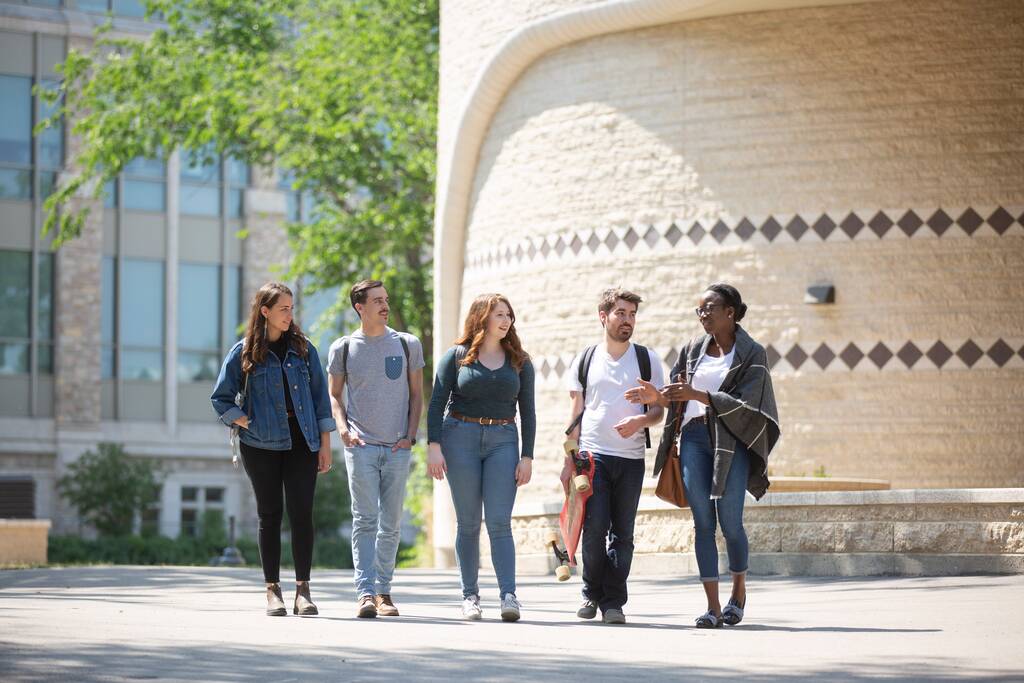
The collateral damage that has been unleashed on universities is real. If governments were simply to ask “Are we seeing the effects of our policies and Acts on our superb universities and protecting them?” that would help. The fact no one is doing that, however, is telling in itself. If the country truly wants strong and globally influential universities, it can’t ignore them while making other plans, prompting a mad and often unsuccessful scramble to clean up the mess afterward.
Being painted with an orthodoxy brush hasn’t helped universities either. In the U.S. there have been numerous criticisms of elite universities changing from having been “centers of excellence to institutions pushing political agendas” as CNN’s Fareed Zakaria put it recently. Elsewhere, in a recent Atlantic article, universities are called “dishonest” because “the social-justice messaging they wrap themselves in is often insincere” and because they appear to push a single ideological perspective. Though that problem is more acute in the U.S., it is increasingly prevalent in Canada. Universities have a history of empowering critical thinking that sees beyond the easily accepted and currently fashionable, but that history is at risk of influencing public and political hostility toward a perceived left-wing EDI indoctrination. That hostility threatens to eclipse the value proposition narrative, and is not going away. I am proud that this university adopted an EDI Policy three years ago and just last month activated its EDI Framework for Action. I’m proud that all our senior leaders continue to learn from our Special Advisor to the President on Anti-Racism and Anti-Oppression. This important work will continue here, but the future may well pose challenges to it.
A poll released just under a year ago by Abacus Data for Universities Canada tells a parallel story. On the bright side, 69 per cent of Canadians believe universities are essential; 73 per cent believe universities should be at the forefront of combatting disinformation; and a full 90 per cent believe the federal government should ensure we’re competitive in research.
But there’s another side to the poll’s findings. In 2015 when the polling began, 78 per cent of Canadians had a positive view of universities; now, only 52 per cent do. In 2015, two per cent of Canadians had a negative view of universities; now, a full 12 per cent do. Those are big changes in the last nine years, attributable to an increasing number of Canadians believing universities are biased toward “progressive thinking.” It will be even more difficult for our universities to attract the financial, public and political support they need if we don’t turn that impression around.
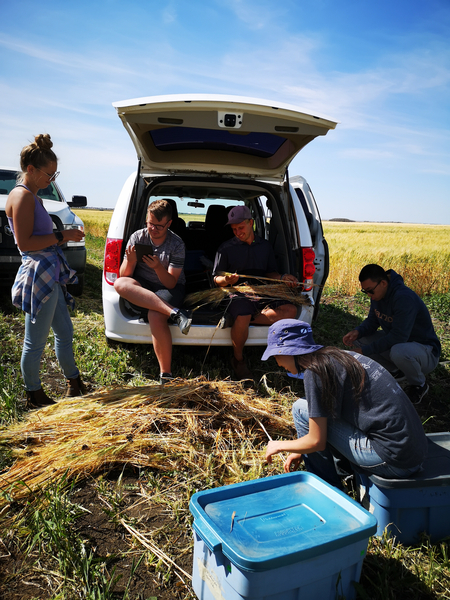
In the face of these headwinds, we all must take the opportunities we have to promote the value proposition of universities that has had limited success in striking the bullseye of political or public opinion. Canadian and American institutions struggle to do that convincingly to governments that are distracted by so much else, and to the public who can often regard universities as defending privilege instead of seeing what their universities are truly doing -- building a better future for Canada.
This university supports the economy of Saskatchewan immensely, and irreplaceably. We are one of the province’s largest employers and its fifth-largest population centre. Our impact on rental, hospitality and other sectors alone contributes an estimated two per cent of Saskatchewan’s GDP. Our research, scholarly and artistic work contributes enormously to the province’s GDP. Our contribution to the provincial economy is one of the highest (per capita) in the region of any university in the country. There is no question that the people of Saskatchewan are getting value for their money with the excellent work this university is doing.
I’ve said much about our university’s contributions to agriculture, water and food security, health, and pandemic preparedness. Our social sciences contribute extraordinary value to the province as well, graduating students prepared to contribute expertise in public policy, business, anthropology, archaeology, economics, and sociology, to name only a few. Hardly anyone in Saskatchewan’s music, theatre or visual arts communities has not had direct ties to this university, contributing to the high quality of life that attracts people to the province and provides them with the reasons to stay. Saskatchewan requires veterinarians – we educate and supply them, as we do 95 per cent of the province’s pharmacists and 90 per cent of the province’s dentists. We educate and supply teachers, educational administrators, and physical therapists. The province requires speech language pathologists and occupational therapists – we’ll be educating and supplying those as well. Our graduates are critical to fulfilling Saskatchewan’s urgent need for trained healthcare workers -- the province would not have emerged from the pandemic as it did without them. Whereas over a decade ago more than 70 per cent of all our University of Saskatchewan graduates left the province, now more than 70 per cent stay here to contribute to its economic and social prosperity and well-being.
We are closing the education gap between Indigenous and non-Indigenous peoples: nearly 3,000 credentials have been awarded to self-declared Indigenous graduates over the last five years, one of the highest numbers among Canadian universities, and our graduation rate among Indigenous students continues to rise.
A disproportionately high number of local businesses appear in the Globe and Mail’s annual list of the country’s fastest growing companies. The majority are started by University of Saskatchewan graduates and peopled by them. As a result, in combination with our RSAW success, our proximity to one of the continent’s largest innovation parks at Innovation Place, our CLS, VIDO, GIFS and our Sylvia Fedoruk Canadian Centre for Nuclear Innovation, and our global talent attractiveness, we are ensuring this province stays ahead of the innovation curve.
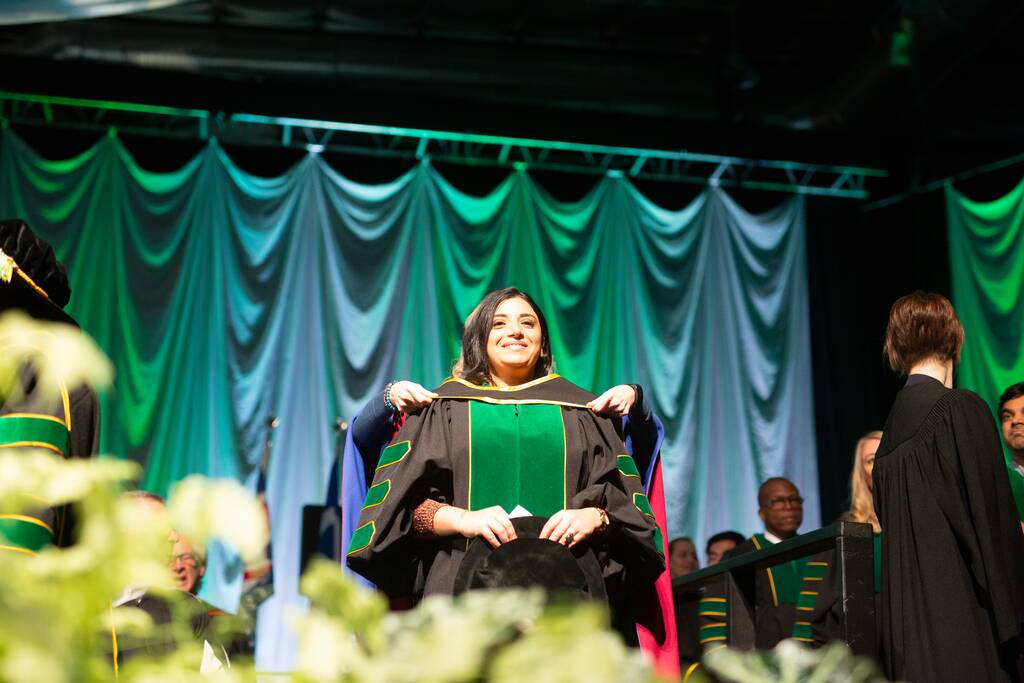
A highly functioning University of Saskatchewan is imperative to the future of Saskatchewan and Canada. This is the value proposition. Our positive impact on the economy, on the social fabric of the province and the country, and on those of the 130 countries our many students return to after graduation is critical and irreplaceable.
The global and diverse talent we continue to attract and retain has helped make this country the testament to democracy that it still is. We have built a first-rate university here over the past century, and are making good on our mission to advance the aspirations of the people of the province, build a rich cultural community, contribute to a sustainable future, and educate engaged global citizens. These accomplishments are measurable. We all must speak about them at every opportunity to our friends, neighbors, government officials, alumni, supporters – and detractors -- to ensure we can repeat what has been, by any measure, the best of years at the University of Saskatchewan.

